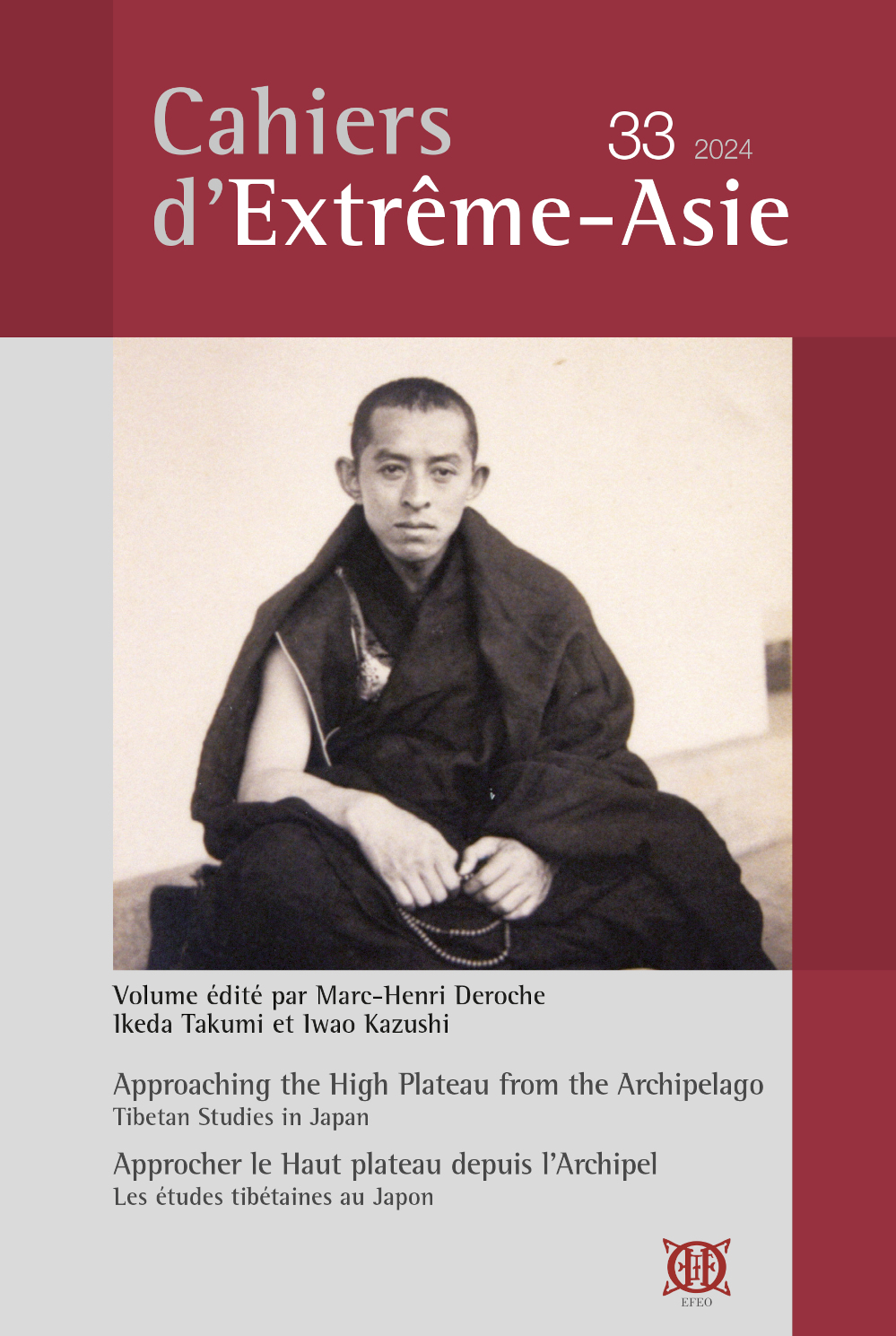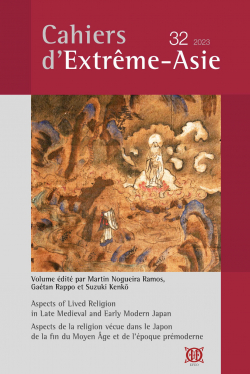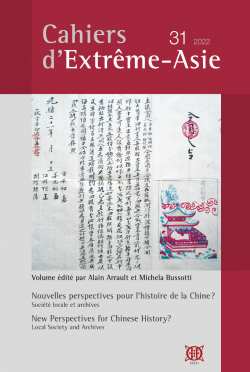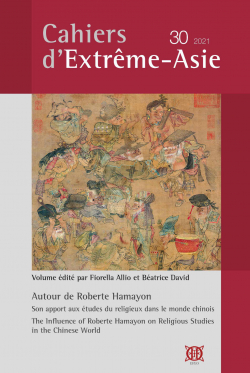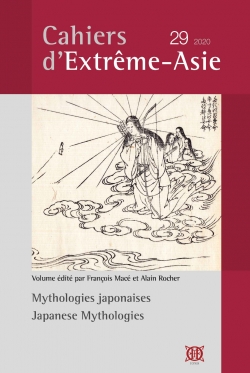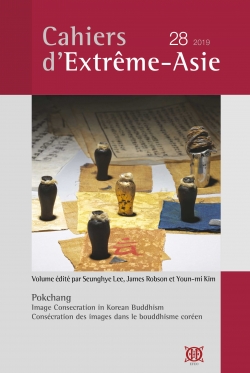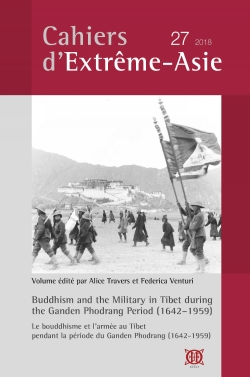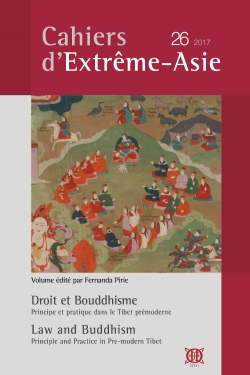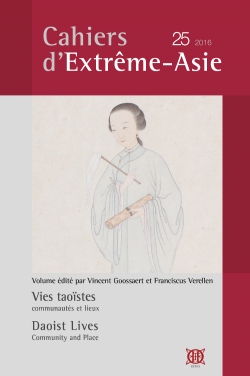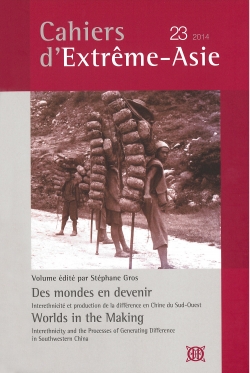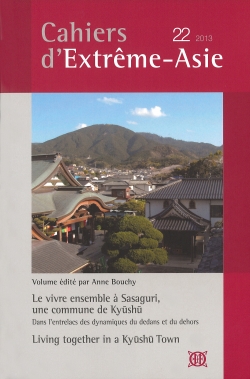The catalog of EFEO Publications includes works on a wide range of disciplines in the humanities and social sciences (archaeology, history, anthropology, literature, philology, etc.), centered on Asia, from India to Japan.
These publications address both specialists, and a wider public interested in Asian civilizations and societies.
Cahiers d'Extrême-Asie 33 (2024)
Approching the High Plateau from the Archipelago Tibetan Studies in Japan / Approcher le Haut plateau depuis l’Archipel Les études tibétaines au Japon
Collection : Cahiers d'Extrême-Asie
Collection's number: 33
Editor: Deroche (Marc-Henri), Ikeda (Takumi), Iwao (Kazushi)
Edition: EFEO
Publication date: 2024
Status : Available
40,00 €
ISBN-13 : 9782855391854
ISSN : 0766-1177
Width : 16 cm
Height : 24 cm
Weight : 0.5 kg
Number of pages : 268
Distributor : EFEO Diffusion, EFEO Kyoto
Geography : Tibet, Japan
Language : French, English
Place : Kyoto
Support : Papier
Description :
16 x 24 cm, 268 p., paperback, llustrations, Abstracts in French and English
Table of contents
About the collection
About the editor
Deroche (Marc-Henri)
Marc-Henri Deroche is an Associate Professor at Kyoto University, Japan, where he teaches Buddhist philosophy and Tibetan studies. His current research investigates mindfulness in Buddhist psychology, theories and manuals of meditation, with a focus on Dzogchen texts and traditions. He obtained his PhD in East Asian Studies at the École Pratique des Hautes Études (Paris). His publications include a monograph, Une quête tibétaine de la sagesse: Prajñāraśmi (1518-1584) et l’attitude impartiale (ris med) (Brepols, 2023); an edited special issue of the journal Religions, titled “Study, Reflection, and Cultivation: Integrative Paths to Wisdom from Buddhist and Comparative Perspectives” (2021–22); and articles appearing in journals such as Revue d’Études Tibétaines, Bulletin of Tibetology, Asian Philosophy, Philosophy East and West, Eidos, Journal of Buddhist Ethics, and others. He has been living in Kyoto since 2008 and has traveled extensively in the Tibetan and Himalayan cultural world.
Ikeda (Takumi)
Ikeda Takumi 池田巧 is a Professor at the Institute for Research in Humanities (Zinbun) at Kyoto University. His research encompasses Tibetan and Chinese linguistics, in particular the descriptive analysis and historical study of the Mu-nya language which belongs to the Qiangic branch of Tibeto-Burman languages and is spoken in southwest China. He is the compiler of Grammatical Phenomena of Sino-Tibetan Languages (6 vols.) published by Zinbun. His publications include “Directional Prefixes in Mu-nya” (2022) and a chapter on Sven Hedin’s sketches of Tibetan expeditions during 1906–7 included in The Explorer Sven Hedin and Kyoto University: Central Asia Fosters East-West Cultural Exchange (Kyoto University Press; Trans Pacific Press, 2019). He is also the coeditor (with Iwao Kazushi) of Chibetto no rekishi to shakai チベットの歴史と社会 [History and Society of Tibet] (2 vols., Rinsen Shoten, 2021). He is currently conducting a collaborative research project on Tibetology at Zinbun with mid-career and younger researchers in Japan.
Iwao (Kazushi)
Iwao Kazushi 岩尾一史 is an Associate Professor in the Department of History at Ryukoku University, Kyoto. He completed his PhD on the history of the Old Tibetan Empire at Kyoto University in 2004. His research focuses on the structure of the Old Tibetan Empire including the military and administrative systems, and taxation. He has also studied Old Tibetan inscriptions from the pillar inscriptions in Central Tibet to graffiti in the Dunhuang caves. He is currently editor-in-chief of Old Tibetan Documents Online (https://otdo.aa-ken.jp), the Old Tibetan language’s most well-known text database. He recently edited two volumes of Chibetto no rekishi to shakai チベットの歴史と社会 [History and Society of Tibet] (coedited with Ikeda Takumi; Rinsen Shoten, 2021), to which many Japanese Tibetologists contributed.
Related books
Cahiers d'Extrême-Asie
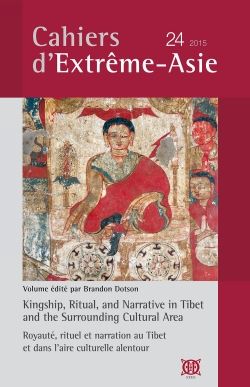
Cahiers d'Extrême-Asie 24 (2015)
Nathan W. HILL, Marie LECOMTE-TILOUINE, Brandon DOTSON, Lewis DONEY, Megan BRYSON, Christian JAHODA, Christiane KALANTARI, Carl YAMAMOTO, Adam C. KRUG, Ruth GAMBLE, YANGMOTSO , ISHIHAMA Yumiko, Martin MILLS, Jeehee HONG, TJ HINRICHS
40,00 €
2016
• Available
